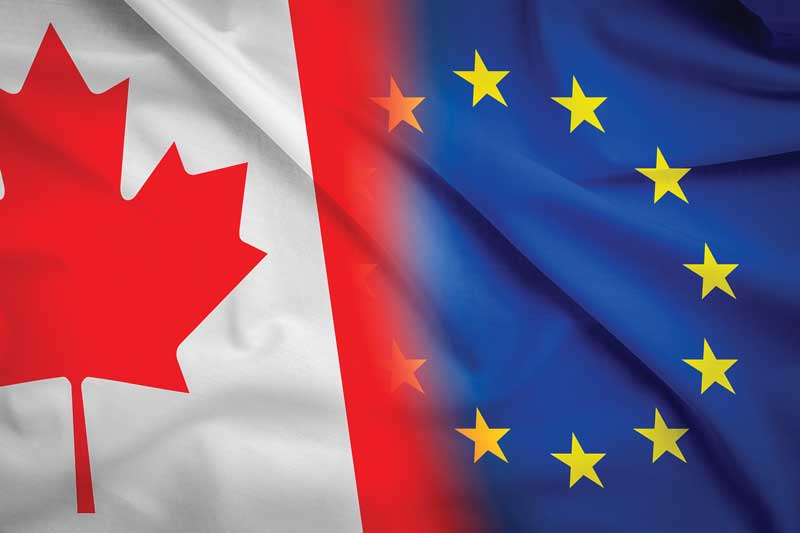After more than six years of negotiation, The Comprehensive Economic and Trade Agreement (CETA) was signed in Brussels last month by Justin Trudeau and senior EU officials. CETA is a bi-lateral partnership that seeks to grow trade between both parties, valued at approximately €63 billion in 2015.
As a member of the EU, Irish firms can look to benefit from the provisions of CETA.
Enterprise Ireland (EI) is the government agency responsible for the development of Irish enterprises in global markets, with an overall aim to grow employment and regional development. The organisation counts Canada as the 10th largest market for Irish products, with EI clients reporting exports of over €280m annually. 2015 showed a 7% year-on-year growth rate which puts Canada among the fastest growing export markets for Ireland.
Moreover, there are approximately 500 EI client companies doing business here at present and as a whole, Irish firms employ some 6000 people across Canada.
CETA increases the accessibility of the Canadian market for such companies and in particular, small to medium enterprises who represent a crucial segment of the Irish economy. Specific benefits include the elimination of tariffs, the opening of public procurement markets, the co-ordination of certifications and quality standards, greater labour flexibility and improved protection of intellectual property.
Key Benefits for
Irish Exporters
Duties and Tariffs
CETA will remove 98% of tariff lines between the EU and Canada. As a result, EU exporters are expected to save approximately €500m a year. For Irish SMEs, the elimination of tariffs will yield savings of up to 15% (depending on product/sector), thus improving their competitiveness and ability to service the market.
Public Procurement
CETA will end limitations in access to public procurement, making it possible for Irish and other EU firms to bid for public contracts. It is the most comprehensive offer Canada has made to another party to date, ensuring market access for key Irish export sectors such as financial services, telecommunications and environmental services.
Co-ordination of
Testing/Certification Procedures
A range of goods will have fewer administrative hurdles to jump due to the mutual recognition of certification and quality standards. This will benefit smaller companies in particular, who face challenges when forced to engage in costly ‘double-testing’ on both sides of the Atlantic.
Labour
Before CETA, company professionals could be temporarily assigned to subsidiaries abroad for up to 90 days. CETA extends this period to three years, and establishes a framework for the mutual recognition of professional qualifications e.g. legal and accounting. This will be of major benefit to Irish expats in such lines of work, and will make it easier for companies to run their operations in Canada.
Better Protection for EU Innovation and Creative Works
The agreement brings significant improvement to how Canada’s IPR system protects patents for Irish pharmaceutical products. CETA will also strengthen copyright protection and Canada has agreed to create border measures against counterfeit trademark goods, pirated copyright goods and counterfeit geographical indication goods.
For more information on Enterprise Ireland and the companies we support, visit www.enterprise-ireland.com.









